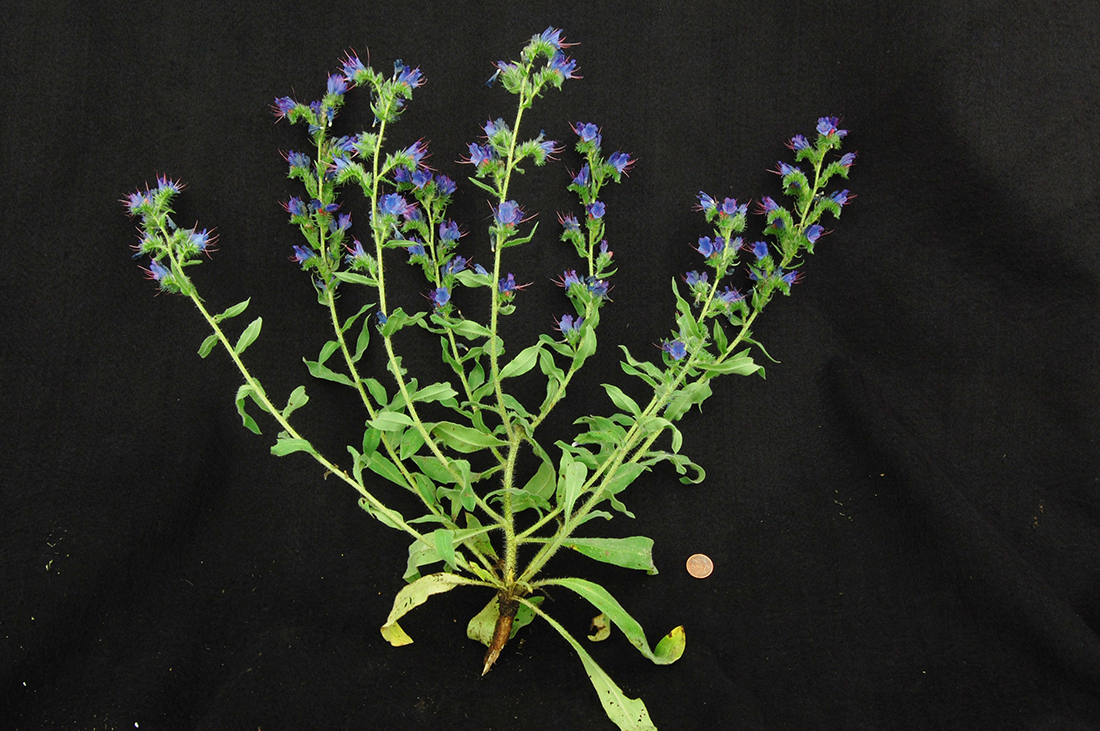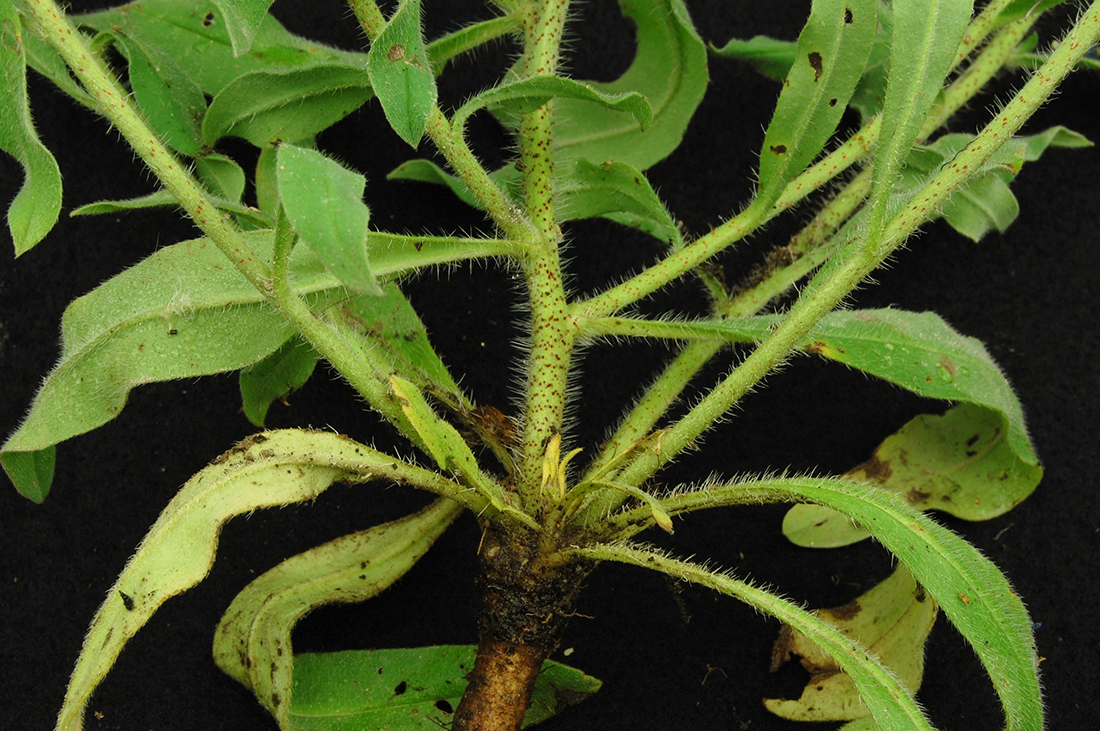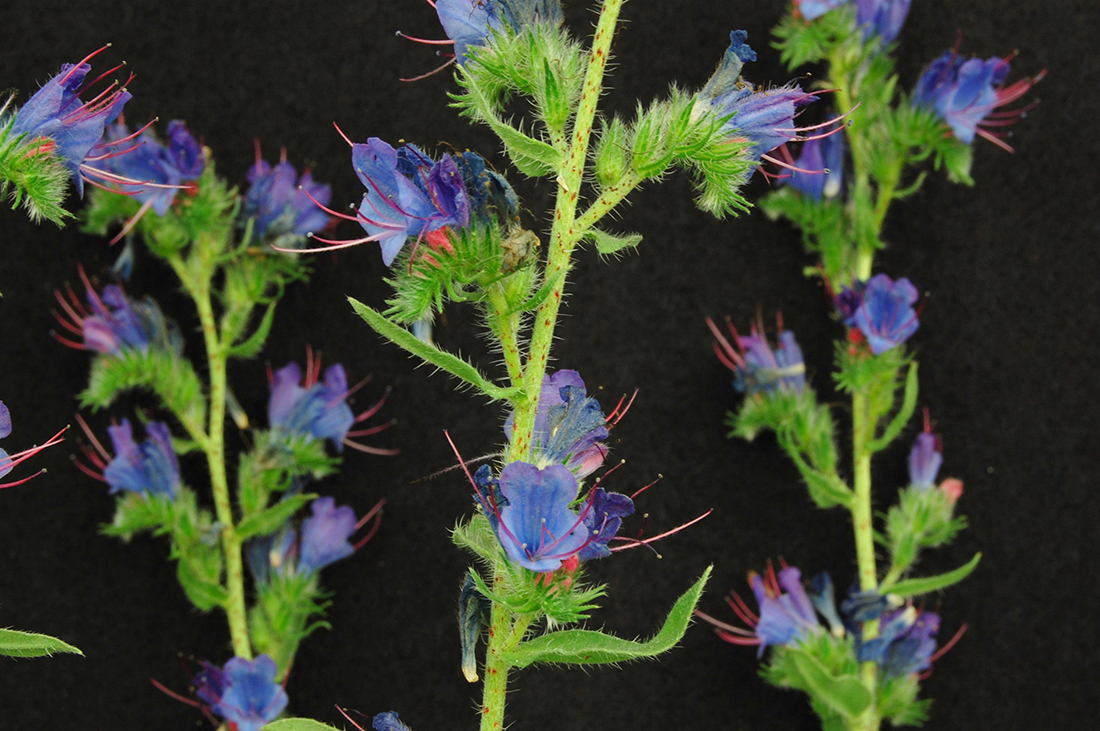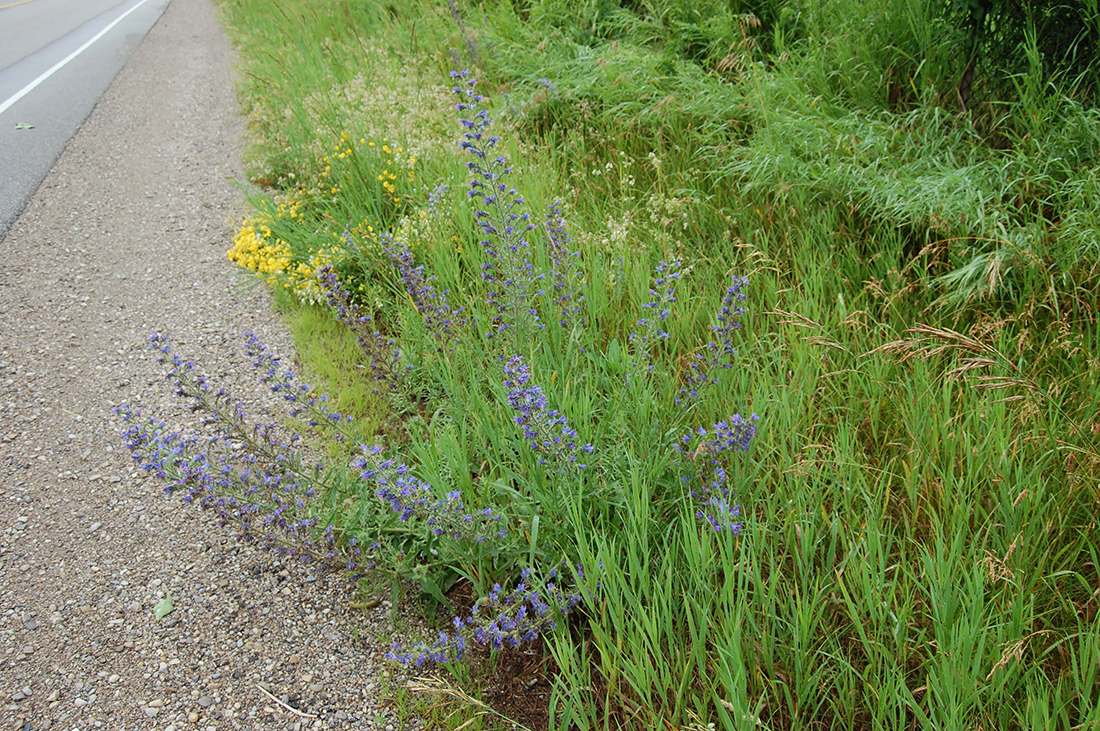Blueweed
- Borage (Boraginaceae family):
- Echium vulgare L.
- EPPO code:
- EHIVU
- Other names:
- Viper’s bugloss, blue devil, blue-thistle
Species information
- Lifecycle:
- Biennial to short-lived perennial.
- Propagation:
- Reproduces by seed.
- Emergence:
- The majority of seeds germinate in the spring although there is some emergence in the fall.
- Habitat:
- Blueweed is native to Eurasia. It is found in pastures, and waste areas, and along roadsides. It prefers dry, rocky or sandy, gravelly soils.
- Competitiveness:
- No published data exists since this plant is rarely found in cultivated fields.
Identification clues
Seedling
- Cotyledons:
- Initially long-oval, they become oblong with hairy margins, 10 mm long.
- Young leaves:
- First year plants form a rosette of long, narrow and harshly hairy leaves.
- Mature leaves:
- Basal leaves are long and narrow with stalks. Stem leaves are alternate and become smaller moving up the stem. All leaves are covered with stiff hairs, and their undersides are often spotted with dark flecks.
Mature plant
- Stem:
- Several stems can arise from each taproot. They grow up to 1 m in height, are speckled and covered in stiff hairs. Some hair is long with swollen reddish or blackish bases that arise from small bumps, and some hair is short and dense.
- Flowers:
- Flowering stems are produced in the second year on short, arching stems that elongate after flowering. Flowers have bright blue petals that are fused at the bases; upper lobes are longer than lower lobes and have a hairy stigma. Its stamens are red. Blueweed flowers from June to September.
- Roots:
- Long, thick black taproot
Helpful identification tip
The bright blue flowers of blueweed are showy and attract honeybees. As the plant matures, the stiff hairs on the leaves and stems becomes sharp and hard and can irritate human skin.




Updated: January 13, 2023
Published: January 13, 2023